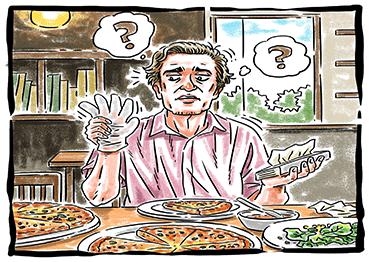originally moved to China in 2015 for a year or two. For many international residents in China, that opening sentence will sound very familiar. However, a decade later I continue to live in The Land of the Red Dragon, with no clear end to my residence in sight. This looming 10-yearanniversary has led me to reflect deeply on the wonderful benefits that life in China offers. It has also led me to ponder the subtle differences between life in the West and life here that continue to surprise me, even after living here for so long.
Some of the most fundamental differences between life in the West and in China are easier to become accustomed to than others. Classic examples include the very meals that start and end our day. In the world of breakfast many Westerners still struggle to adjust to China’s simultaneously gelatinous and watery congee. However, who needs toast or cereal when you can indulge yourself with a stuffed steamed bun or a hot youtiao (like a churro). For Westerners who are accustomed to enjoying a light bowl of muesli for breakfast, the challenge in China is not how to find breakfast, it is how not to overindulge.
The same cannot be said for dessert. In the West dessert is sacred. Whether you prefer ice cream, lemon cheesecake, chocolate mousse or a tiramisu, everyone in the West has their favorite. For those who insist on eating fruit, it is usually served in the form of an Eton mess or summer pudding, just to ensure that even the health-conscious receive a sugar rush and an artery clogging dose of fat. That might explain why even after 10 years, the sight of a red bean soup at the end of a meal never fails to disappoint. Therefore, although life in China may feel healthier, visits home have become a competitive challenge in seeing exactly how many crème brûlées, Bakewell tarts and fudge brownies one person can eat on a single holiday.
One option to relieve the absence of cookies, muffins and apple pies in China would be to bake them at home. While this may sound very sensible, it raises another curious difference between our cultures, the mysterious case of the missing ovens. In the West it would be simply unthinkable to have a kitchen without an oven. In China having an oven is a luxury. As a result, Westerners in China need to adapt to a new life without freshly baked bread, warm oat flapjacks and cheesy pasta bakes.
On a rainy day, the absence of all those delicious carbs can be a source of home sickness. However, it would be wrong to think that China is a land without indulgence, indeed in many ways the opposite is true. Chinese culture has fully embraced the idea of treating oneself, including with formerly Western traditions such as birthday cakes. Anyone who has worked in a Chinese office will be familiar with the regular presence of gigantic, elaborate cakes arriving on the back of a delivery scooter. Without a doubt, China wins the Olympic gold medal in cake decoration. Every design, style, color, and shape are available for custom creation and usually for a very affordable price.
However, slice into the cake and a curious difference emerges. Where Western birthday cakes are typically dense, often containing a rich, gooey, chocolate sponge, Chinese birthday cakes are usually exceedingly light and topped with a towering layer of fluffy synthetic cream.
While these differences essentially amount to little more than taste preferences, certain differences are a little more complicated. I still don’t understand why I receive free plastic gloves whenever I order a pizza, burger or French fries in a restaurant, yet still get charged extra for an individually packaged napkin. Then there is the difference between the West’s obsession with finishing food and drink, compared to China’s leave it approach. While I might, eventually, learn to accept the idea of leaving food on your plate once you are full, I don’t think I will ever be able to look at a table of half-full beer bottles without crying a little inside. Therefore, whether it’s understanding the etiquette of how to spin a lazy Susan, or the benefits of warm water instead of iced, even after 10 years, there is always plenty more to learn.

 Old Version
Old Version